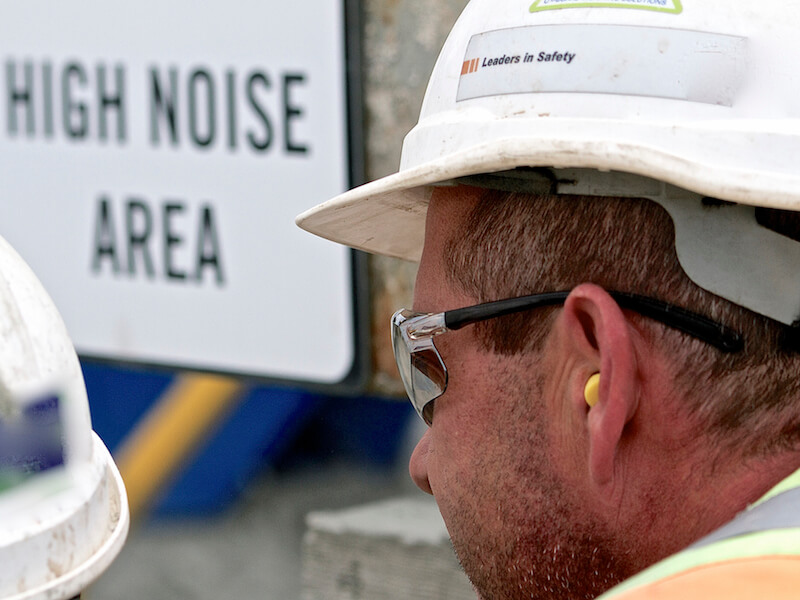
Your hearing can be harmed by a loud workplace and it can also affect your concentration. Your hearing health can be negatively impacted by even modest noise levels if you’re exposed to it for several hours each day. This is why questions like “what hearing protection do I need?” are worth asking.
It’s not common knowledge that several levels of hearing protection are available. But it makes sense when you stop to consider it. A truck driver won’t need the same amount of protection that a jet engine mechanic will.
Levels of Hearing Damage
The fact that 85dB of sound can start to harm your ears is a basic rule of thumb. We aren’t really used to thinking about sound in terms of decibels (even though that’s how we calculate sound – it’s just not a number we’re used to putting into context).
When you’re sitting in your car in city traffic, that’s about 85 decibels. No biggie, right? Wrong, it’s a big deal. It becomes a big deal after numerous hours. Because the duration and frequency of exposure are extremely important when it comes to damaging noise exposure.
Common Danger Zones
It’s time to consider ear protection if you’re exposed to noise at 85 dB or more for 8 hour days. But that’s not the only threshold you should be aware of. If you’re exposed to:
- 90 dB (e.g., lawnmower): Anything over four hours will be damaging to your ears.
- 100 dB (e.g., power tools): Anything over one hour is considered harmful to your ears.
- 110 dB (e.g., leaf blower): Injury to your hearing occurs after 15 minutes of exposure to this noise level.
- 120 dB (e.g., rock concert): Any exposure can cause damage to your hearing.
- 140 dB (e.g., jet engine): Any exposure can cause damage and may even cause instant pain.
When you’re going to be exposed to these levels of sound, wear hearing protection that will bring the decibels in your ears down below 85 dB.
Make Sure Your Hearing Protection Fits Comfortably
The effectiveness of ear protection is quantified by something called a Noise Reduction Rate, or NRR. The outside world will be progressively quieter the higher the NRR.
It’s really important that you choose hearing protection with a high enough NRR to effectively protect your hearing (and your workplace will typically make recommendations about what level might be appropriate).
Comfort is also an important factor to think about. It’s really essential that your hearing protection is comfortable to use if you want to keep your hearing safe. Why? Because if your hearing protection is uncomfortable, you’re not going to wear it.
Hearing Protection Options
There Are Basically Three Options:
- In-ear earplugs
- Earplugs that stay just outside of the ear canal.
- Earmuffs.
There are advantages and disadvantages to each kind of protection, but personal preference is often the deciding factor. For some people, earplugs are irritating, so earmuffs may be a better choice. Other individuals may value the leave-them-in-and-forget-them approach of earplugs (obviously, you won’t want to forget them for too long… you should take them out at the end of your workday. And clean them).
Find a Consistent Degree of Hearing Protection
Any laps in your hearing protection can lead to damage, so comfort is a significant factor. If earmuffs are scratchy and uncomfortable you’re more likely to take them off for short periods and that can have a negative impact on your hearing over time. This is why hearing protection that you can leave in for the entire workday is the best option.
You’re ears will stay happier and healthier if you choose the correct degree of hearing protection for your circumstance.
Call Today to Set Up an Appointment
References
https://www.cdc.gov/nceh/hearing_loss/what_noises_cause_hearing_loss.html
